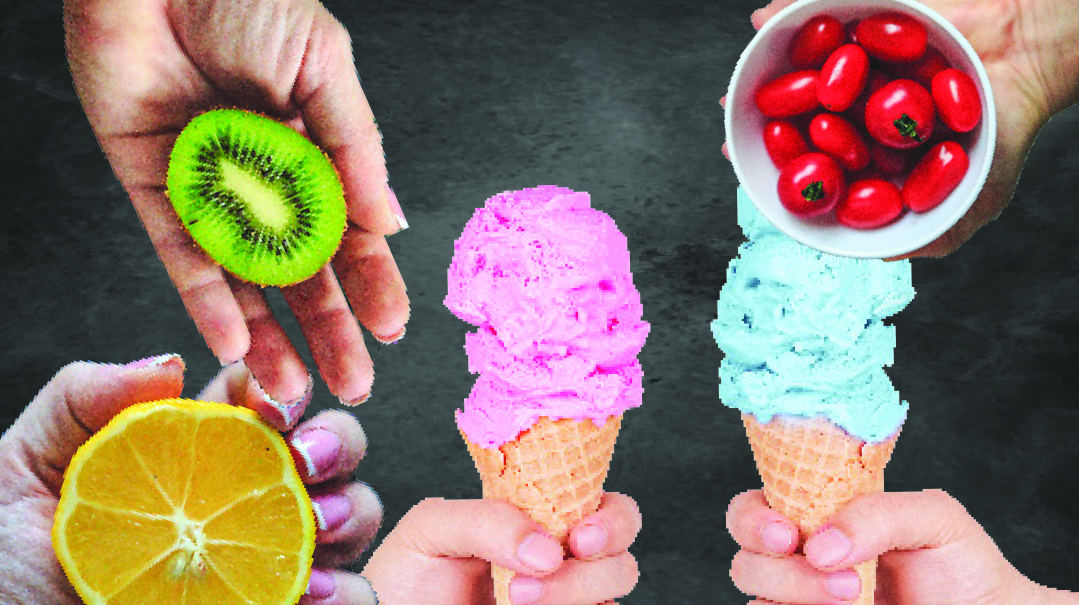“How Was Last Week’s Challenge?”
| June 15, 2021"When you focus only on negative aspects of yourself, you’re going to feel bad about yourself”

"Welcome everyone!” Bracha entered the room. “How was last week’s challenge?”
Shoshana raised her hand and immediately answered. “I’m not 100 percent sure, but I think I noticed a bunch of emotions since last session. It was weird, and a little scary, but also pretty cool!”
“That’s great, Shoshana!” Bracha celebrated. “It takes practice to notice how you feel, so don’t worry if it takes time for you to learn how to tune in and get comfortable with the experience.”
“It’s actually really fascinating how many different emotions we have, and how different tools work for different feelings,” Chaya added.
“That’s so true, Chaya,” Leah exclaimed. “Isn’t our body amazing?”
“Our body is amazing,” answered Bracha, “but sometimes, concerns about our body lead to concerns about food, which fuels the dieting cycle. When we can feel good about our body, we want to nourish ourselves as a sign of that connection.”
“But how do we do that, especially when everyone is always talking about how they wish they looked or the weight they want to lose?” asked Shoshana.
“Good question,” Bracha replied. “The first step is to stop participating in those conversations. When you focus only on negative aspects of yourself, you’re going to feel bad about yourself.”
“Ugh, why would you even want to have those conversations?” Chaya piped up. “Negative conversations don’t make you closer to each other, it’s just a competition of who can feel worse or make others feel worse.”
“Maybe,” Shoshana retorted, “but they also encourage you to improve yourself and get healthy.”
“Not exactly, Shoshana,” Bracha cautioned. “Bodies are not as changeable as we’re led to believe. Genetics play a big role in our size, while exercising or food have a significant impact on our body size and shape.”
“Yeah, like I wish my feet were a size seven, but I’m just naturally an eight and a half and no matter what I do, that won’t change,” Leah said.
“Exactly! And as for health, that’s not dependent on size. People can be healthy in big bodies, and unhealthy in small bodies. Health is how we care for our bodies, including what we eat, how we move, sleeping well, and caring for our mental well-being. And that’s fully possible without ever changing our appearance.”
Bracha continued. “That’s step one. Let’s try step two. To respect or appreciate our body, we need to recognize what it does. What are some of those things?”
“It gets me places.”
“It helps me learn new things.”
“It allows me to play and enjoy sports.”
“It allows me to read and understand.”
“It’s responsible for my artistic side.”
“It digests my food and turns it into energy.”
“Fantastic! Bodies are so much more than appearance. They do things. Focusing on what our body does, rather than how it looks, can help us treat it better. What are some ways you can show your body respect?” Bracha asked.
“Good hygiene.”
“Going to sleep on time.”
“Eating well.”
“Pampering yourself!”
“Wearing clothing you feel good in.”
“Going outside in nice weather.”
“Those are good ideas,” Bracha agreed. “What about the importance of talking positively about our bodies? Our words have a big impact on our feelings.”
“But what if you really, really don’t like how you look? Like, you’re just not comfortable with your appearance?” asked Chaya.
“That can be really painful,” Bracha answered. “One thing to do is surround yourself with people who have many different body types. Seeing more body types can get you comfortable when your own doesn’t meet the ‘standard’ or ‘typical’ body type that you have been made to feel is the right one. When we’re surrounded by people who all look the same, we think we need to look that way too. And when we don’t, that’s painful and hard to come to terms with.”
“But… if I don’t think those ‘other’ body types are pretty, why would I want to look that way?” asked Leah.
“What you ‘think is pretty’ is based very much on your ingrained or learned beliefs and biases. Just like there are many types of flowers or birds, people too are meant to look different. Imagine how boring it would be if we all looked exactly the same! Trying to avoid talk that shames people with higher weights, and not complimenting people for weight loss or body changes, can help us feel better in our current bodies, and not fear weight changes. Try it!”
Until next time…
Bracha Kopstick is a registered dietitian offering virtual nutrition counseling, specializing in helping children and teens develop a good relationship with food and their body. She can be contacted through Teen Pages for more information about joining your own Intuitive Eating Workshop.
(Originally featured in Teen Pages, Issue 865)
Oops! We could not locate your form.

